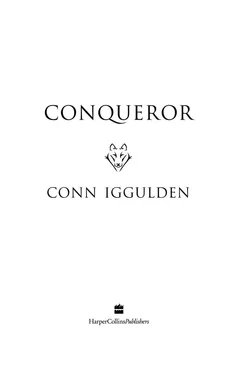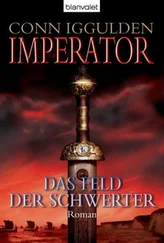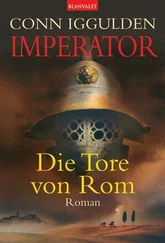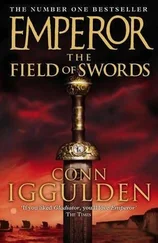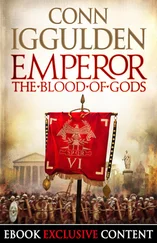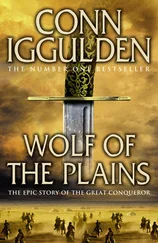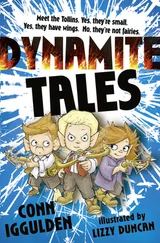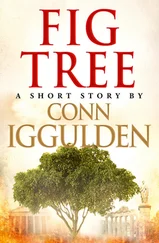The tension seemed to swell in the air as his two hundred closed on the detachment. Bayar felt himself shudder slightly as he passed the point where he knew he was in arrow range. He wore layered scale armour in the Chin style, but he knew as well as any man alive that the long Mongol arrows could pierce it. He felt sweat trickle from his armpits and showed them only the cold face. Kublai depended on him.
At a hundred yards, Bayar wanted to call a halt, but it was too far to speak with whoever led them and he forced himself to ride on as if he didn’t face armed men able to send shafts down his throat at that distance. Batu’s detachment watched him come with no expression, though they shifted their bows in growing tension as he came to barely twenty paces. In the sudden silence, he could hear the banners in the wind, furling and snapping. He took a deep breath, controlling his nerves so his voice would be strong and steady.
‘Under flags of truce, I seek Lord Batu Borjigin,’ he shouted.
‘You have found him,’ the man at the centre responded. ‘Now why have you come onto my lands with tumans? Has the great khan declared war on my people?’
For an instant, Bayar fought not to smile. He faced death in a heartbeat and his physical reaction was to grin.
‘I do not know what the pretender is doing, my lord. I know Kublai Khan offers you peace in exchange for loyalty.’
Batu’s mouth fell slightly open. He spluttered as he spoke, his dignity forgotten.
‘What? Kublai Khan? Who are you to come here and talk of Kublai?’
Bayar laughed at the man’s confusion, finally letting out some of the tension in him.
‘Offer me guest rights in your camp, my lord. I have ridden a long way and my throat is dry.’
Batu stared at him for a moment that seemed endless, until Bayar’s threatening laughter grew still in him. The man was around fifty, Bayar judged, with hair that had gone dark grey and heavy lines around his mouth and eyes. He wondered if he resembled Genghis as he waited, memorising the face.
‘Very well, I grant you guest rights for this evening and no longer. Until I have heard what you have to say to me.’
Bayar relaxed slightly. He would never be completely safe, even after such an offer, but it was never given lightly. Until the following morning, Batu would be his host, even to the point of defending him if he were attacked. He dismounted and nodded to his men to do the same. Batu followed the action and came stalking over the frozen grass, his face full of curiosity.
‘Who are you?’ Batu demanded.
‘General Bayar, my lord. Officer to Kublai Khan.’
Batu shook his head in confusion.
‘Send your men away and have them camp in the valley two miles to the east. I won’t have them frightening my villages. There will be no looting, or contact with my people, general. Is that clear?’
‘I will give the orders, my lord,’ Bayar replied.
The older man seemed to be studying him, his expression still astonished. Bayar watched as felt rugs were laid out on the grass and tea put on to boil. He sent word back to his tumans and then settled himself. He only hoped he could find the right words to impress the man who sat across from him.
Batu waited until Bayar had taken a bowl of tea in his right hand and sipped it, tasting the salt.
‘Now explain, general. You know, I almost hope you are a madman. That would be a better thing than the news I think you have brought.’
CHAPTER THIRTY-SIX

Samarkand was a beautiful city, with white mountains in the distance and walls so thick that three horsemen could ride abreast on the crown. Blue towers showed over the sand-coloured walls, but the great gates were closed. Kublai’s tumans had driven farmers and villagers ahead of them like geese, the crowd growing as they rode the last few miles. Unable to enter the city, they sat and wailed in front of it, raising their hands to those within. Kublai’s warriors ignored them.
All along the walls, armoured Mongols and Persians looked down in stupefaction. No army had besieged Samarkand since Genghis. Yet there were many still alive who remembered the horrors of that time. Hundreds, then thousands of the inhabitants climbed steps on the inside to stare at the tumans.
Kublai looked up at them, sitting comfortably on a thin horse as it nuzzled the ground for anything worth eating. His face and fingers still ached from the cold he had endured in the mountain passes. Though the sun was strong, he knew he would lose skin on his cheeks, already darker than the rest of his face as it began to peel and crack.
Zhenjin trotted his mount over to his father, though he did not speak as he too looked up at the great walls. Kublai smiled to see his son’s expression.
‘My grandfather took this city once, Zhenjin,’ he said.
‘ How? ‘ the boy replied, in awe. He barely remembered Karakorum, and Samarkand was designed to impress exactly the sort of force Kublai commanded.
‘Catapults and siege,’ Kublai replied. ‘He did not have cannon then.’
‘We have no cannon, father,’ Zhenjin replied.
‘No, but if I must, I will have the men build heavy machines to break the walls. It will not be quick, but the city will fall. That is not why I came here though, Zhenjin. I have no interest in killing my own people, unless they force my hand. There are faster ways, if they know their history.’
He signalled to Uriang-Khadai and in turn the man snapped an order to two of the warriors. They leapt from their saddles and began to unpack equipment from spare horses. Zhenjin watched as they took rolls of material and spars onto their shoulders, grunting at the weight.
‘What do they have there?’ he asked.
‘You will see,’ Kublai replied, smiling strangely to himself. The scholar he had been was very far away at that moment, though he took joy in the story of his family and the history of the city. History was more than just stories, he reminded himself as the men walked forward with their burdens. It taught lessons as well.
Under the eye of their khan, the men worked quickly, heaving layers of cloth onto a wooden frame and hammering pegs and ropes into the stony ground. They had walked into arrow range and their stiff backs showed how they tried to resist the fear that someone would put a shaft into them as they worked.
When they stood back, the tumans broke into a roar of challenge, unplanned, a crash of sound that echoed back to them from the walls. A white tent stood before Samarkand.
‘I do not understand,’ Zhenjin said, shouting to be heard over the noise.
‘The senior men in the city will,’ Kublai replied. ‘The white tent is a demand for surrender, a sign to them that the khan’s tumans have declared war. As the sun sets, if their gates remain closed to me, a red tent will follow. It will stand for a day before their walls. If they ignore that, I will raise a black tent before them.’
‘What do the red and black tents mean?’ Zhenjin asked.
‘They mean death, my son, though it will not come to that.’
Even as he spoke, the huge gates began to swing open. A cry of hope went up from the crowd of terrified refugees around the walls. They streamed to that one point as if a dam had burst, pushing each other in desperation and getting in the way of riders trying to leave the city. Kublai grinned at his son.
‘They remember Genghis still, at least in Samarkand. See there, my son. They come.’
Lord Alghu was sweating heavily, though he had bathed in cool waters as the sun rose. He had been called from his palace rooms by senior men, their faces white with fear. He could still hardly believe the sheer size of the army that had gathered before Samarkand. For the first time in his life, he understood how it must have been for the enemies of the nation to wake and see tumans waiting for them. He wished his father Baidur still lived. He would have known what to do in the face of such a threat.
Читать дальше
Конец ознакомительного отрывка
Купить книгу
